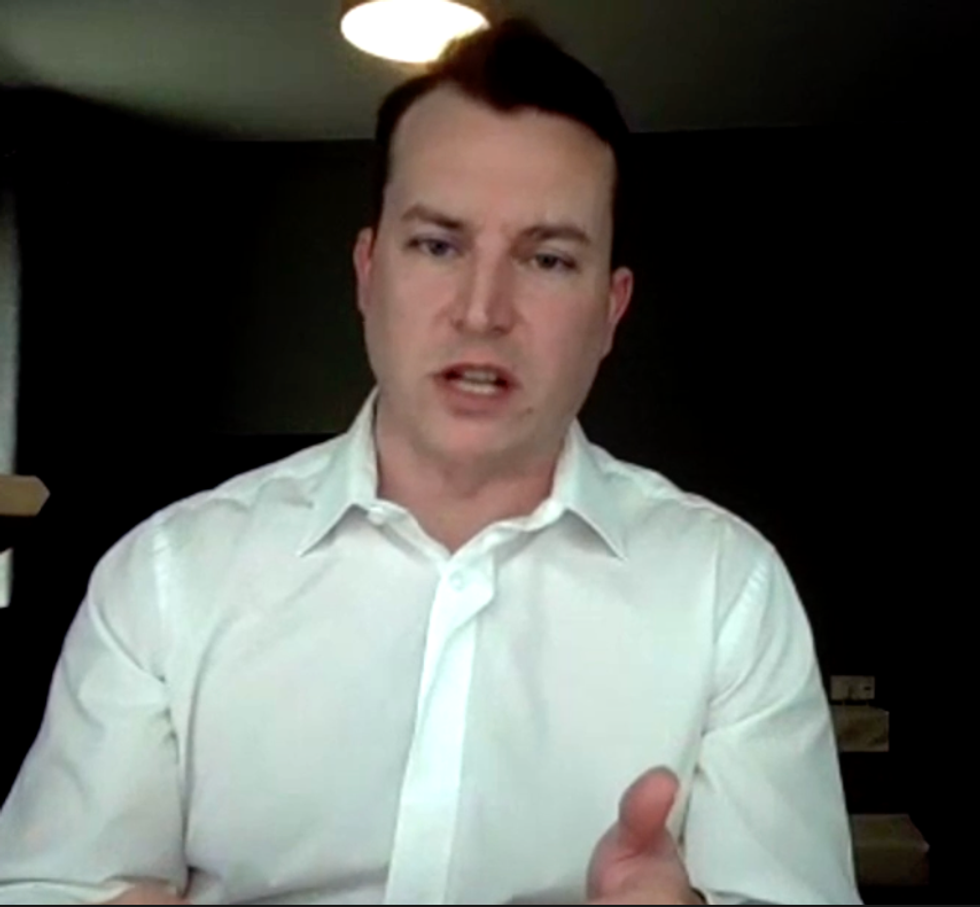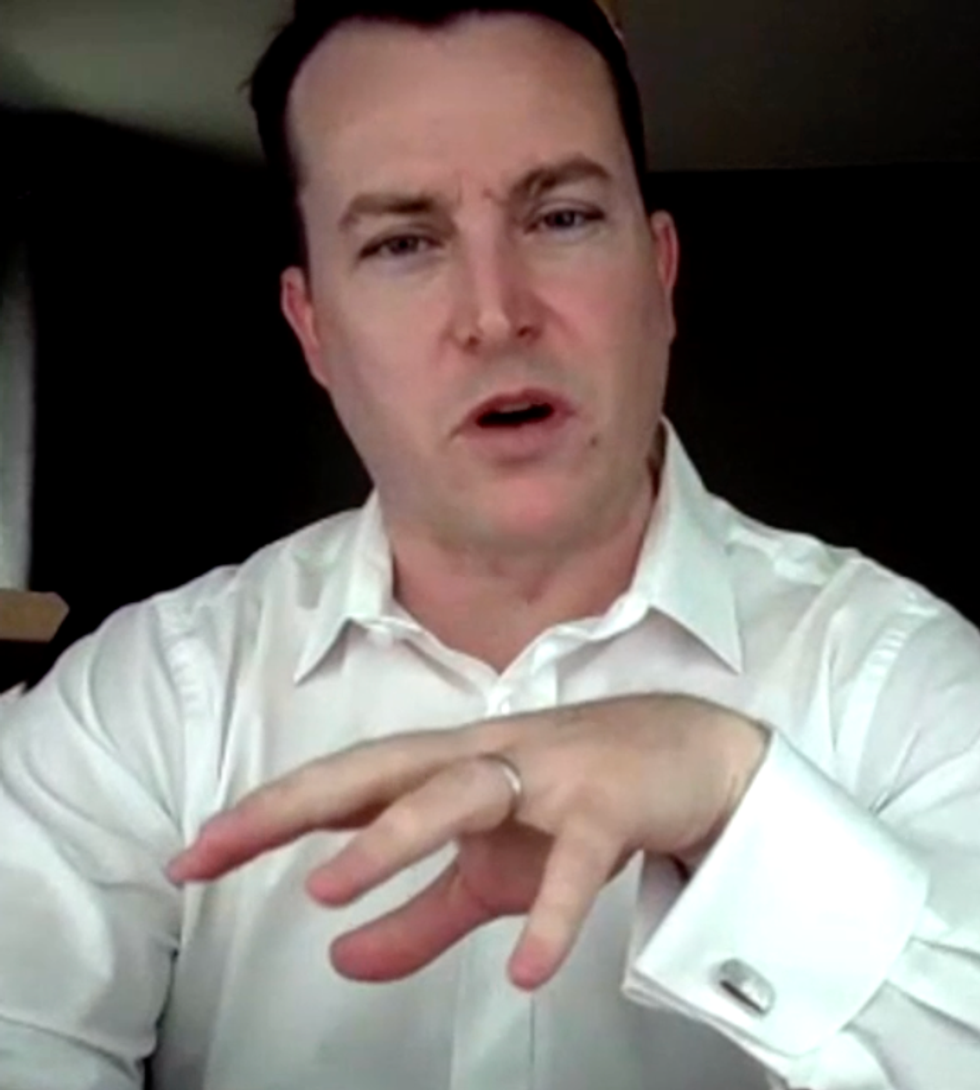Adam Chapman
Guest Reporter
A Reform UK MP has revealed the devastating impact Sir Keir Starmer's planned tax raid would potentially have on farmers in his constituency.
His brutal assessment comes after Labour defeated a Conservative motion to scrap the controversial inheritance tax change on Wednesday.
The motion was rejected in the House of Commons with 339 MPs voting against and 181 in favour.
Farmers have expressed fury over the proposed inheritance tax changes, which would impose a 20 per cent levy on farms valued over £1million starting from April 2026.
One farmer told GB News that "huge anger" is building in the countryside, adding: "It's absolutely immense."
Reform MP James McMurdock confirmed to GB News that this is the feeling on the ground in Essex.
Three farmers in his constituency of South Basildon and East Thurrock broke down the brutal economics of the changes as they see it.

He explained: "When you look at their actual margins, you have to accept that for them to pay their bills on top of the new inheritance tax, it would take up to 80 or 90 per cent of their profits. So when you break these guys' wages down in terms of profits and hours invested, we're talking minimum wage levels.
"Then there's the enormous amount of money that everything costs on these farms means - they literally need every penny just to stay on top of the capital investments they need to operate.
"If you take that funding away their capital investment disappears, and their business slowly dies. There is no way for them to operate if with these new rules. It really is that simple."
And yet, the Government refuses to back down, arguing that slapping 20 per cent death duties on farmers’ assets over £1million was a "fair and balanced" approach to fill the £22billion black hole left by the previous government.
Labour insists that the changes will only affect a small number of the wealthiest estates, with Treasury figures suggesting around 500 estates per year would be impacted by the new inheritance tax rules.
The party argues that this approach ensures that the "wealthiest estates and the most valuable farms pay their fair share", while the vast majority of farmers remain unaffected due to exemptions and allowances.
Exactly how many farms would be affected by the tax changes is open to debate.
Dan Neidle, founder of the independent Tax Policy Associates, has argued that the changes to inheritance tax reliefs might not hit tax avoidance as intended but will impact family farms. This suggests a potential miscalculation in revenue generation from these tax changes.
LATEST MEMBERSHIP DEVELOPMENTS

The Country Land and Business Association (CLA) has estimated that capping agricultural property relief at £1m could affect up to 70,000 UK farms over time, which could imply a broader economic impact than anticipated by the government's projections.
The CLA's argument suggests that this policy might lead to a reduction in agricultural productivity or the sale of land rather than the anticipated tax revenue increase.
The Treasury's own expectation is that these changes would affect around 500 estates annually, based on previous claims for agricultural property relief (APR).
BBC Verify's analysis is broadly in line with the government's figures, but this does not necessarily equate to increased revenue if those estates adjust their operations or assets to minimise tax liability or if smaller farms are disproportionately impacted, leading to economic activity reduction.
As McMurdock points out, it really matters who is right as people's livelihoods are at stake.
"It's a way of life for these guys. There is no plan B, it's either win or your way of life is over."
GB News has approached the Department for Environment, Food & Rural Affairs for comment.
Find Out More...
His brutal assessment comes after Labour defeated a Conservative motion to scrap the controversial inheritance tax change on Wednesday.
The motion was rejected in the House of Commons with 339 MPs voting against and 181 in favour.
Farmers have expressed fury over the proposed inheritance tax changes, which would impose a 20 per cent levy on farms valued over £1million starting from April 2026.
One farmer told GB News that "huge anger" is building in the countryside, adding: "It's absolutely immense."
Reform MP James McMurdock confirmed to GB News that this is the feeling on the ground in Essex.
Three farmers in his constituency of South Basildon and East Thurrock broke down the brutal economics of the changes as they see it.

He explained: "When you look at their actual margins, you have to accept that for them to pay their bills on top of the new inheritance tax, it would take up to 80 or 90 per cent of their profits. So when you break these guys' wages down in terms of profits and hours invested, we're talking minimum wage levels.
"Then there's the enormous amount of money that everything costs on these farms means - they literally need every penny just to stay on top of the capital investments they need to operate.
"If you take that funding away their capital investment disappears, and their business slowly dies. There is no way for them to operate if with these new rules. It really is that simple."
And yet, the Government refuses to back down, arguing that slapping 20 per cent death duties on farmers’ assets over £1million was a "fair and balanced" approach to fill the £22billion black hole left by the previous government.
Labour insists that the changes will only affect a small number of the wealthiest estates, with Treasury figures suggesting around 500 estates per year would be impacted by the new inheritance tax rules.
The party argues that this approach ensures that the "wealthiest estates and the most valuable farms pay their fair share", while the vast majority of farmers remain unaffected due to exemptions and allowances.
Exactly how many farms would be affected by the tax changes is open to debate.
Dan Neidle, founder of the independent Tax Policy Associates, has argued that the changes to inheritance tax reliefs might not hit tax avoidance as intended but will impact family farms. This suggests a potential miscalculation in revenue generation from these tax changes.
LATEST MEMBERSHIP DEVELOPMENTS
- France is now left without a government or a budget - so what comes next?
- Clive Myrie is an example of everything that is wrong with the BBC - Kelvin MacKenzie
- Tory defector begs Reform UK to avoid critical MISTAKE as he reveals 'final straw' behind exit

The Country Land and Business Association (CLA) has estimated that capping agricultural property relief at £1m could affect up to 70,000 UK farms over time, which could imply a broader economic impact than anticipated by the government's projections.
The CLA's argument suggests that this policy might lead to a reduction in agricultural productivity or the sale of land rather than the anticipated tax revenue increase.
The Treasury's own expectation is that these changes would affect around 500 estates annually, based on previous claims for agricultural property relief (APR).
BBC Verify's analysis is broadly in line with the government's figures, but this does not necessarily equate to increased revenue if those estates adjust their operations or assets to minimise tax liability or if smaller farms are disproportionately impacted, leading to economic activity reduction.
As McMurdock points out, it really matters who is right as people's livelihoods are at stake.
"It's a way of life for these guys. There is no plan B, it's either win or your way of life is over."
GB News has approached the Department for Environment, Food & Rural Affairs for comment.
Find Out More...